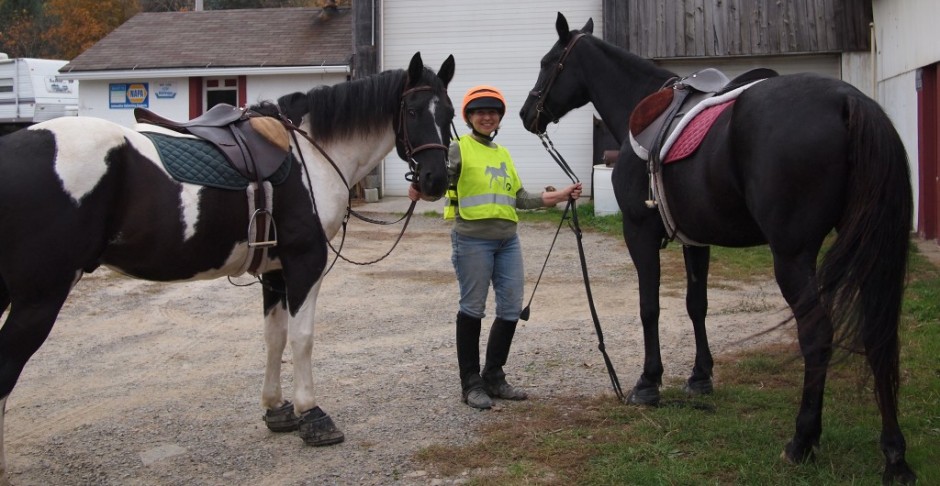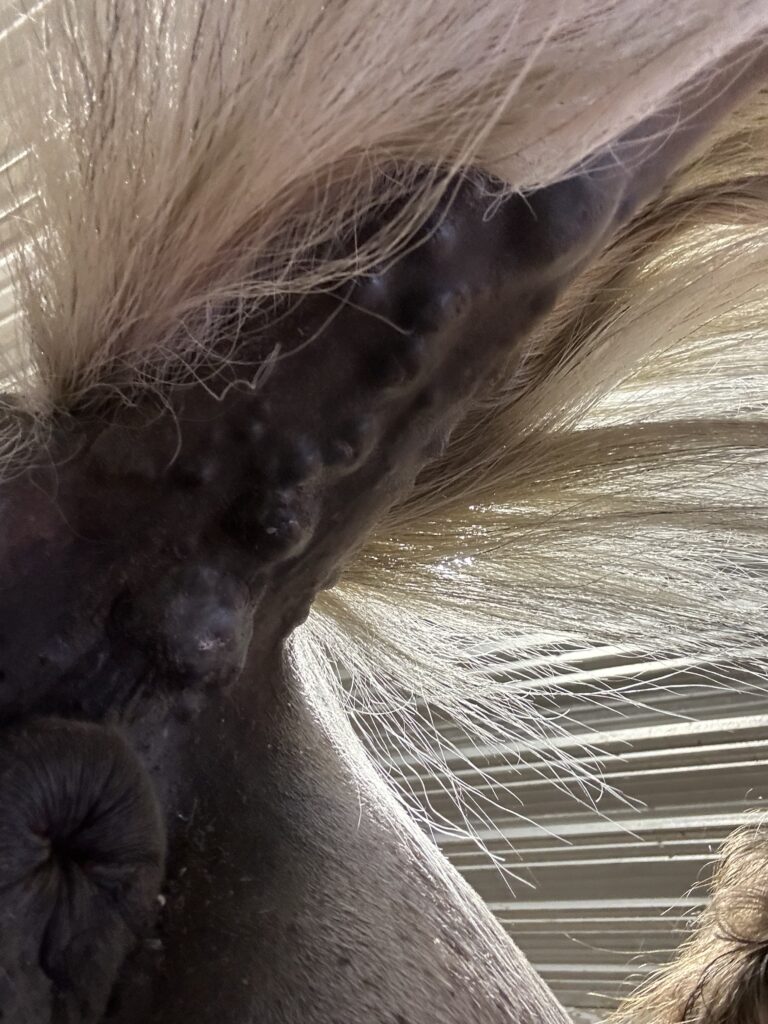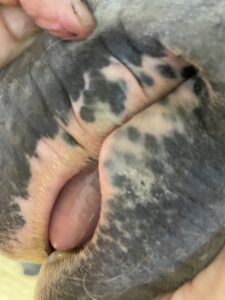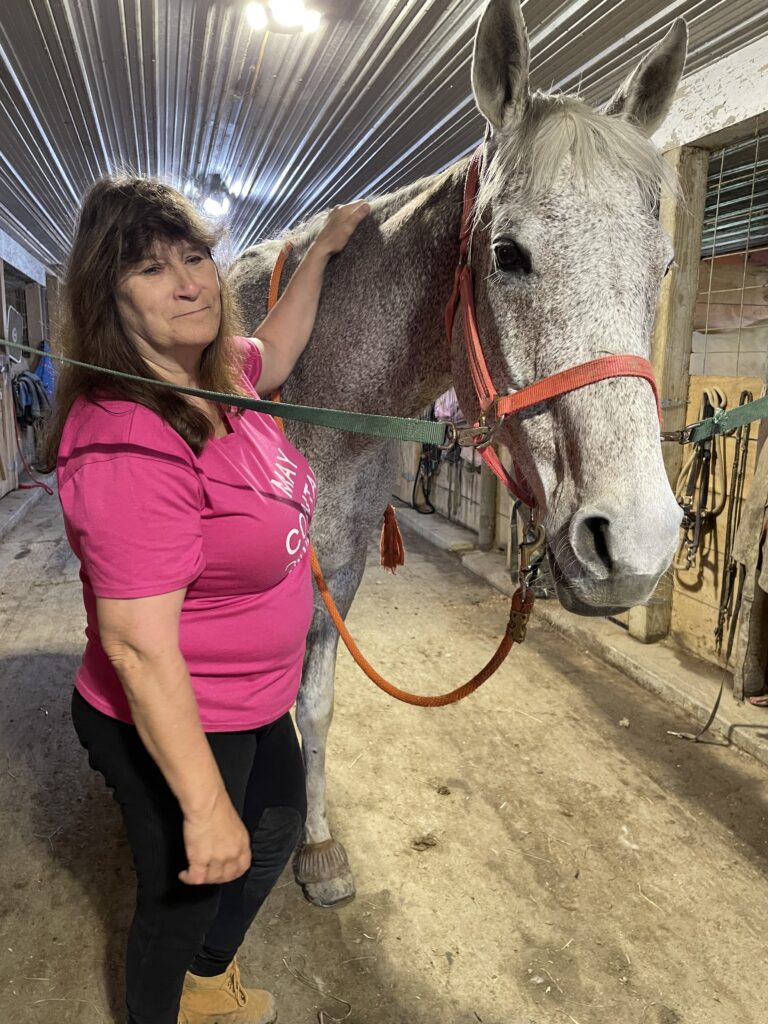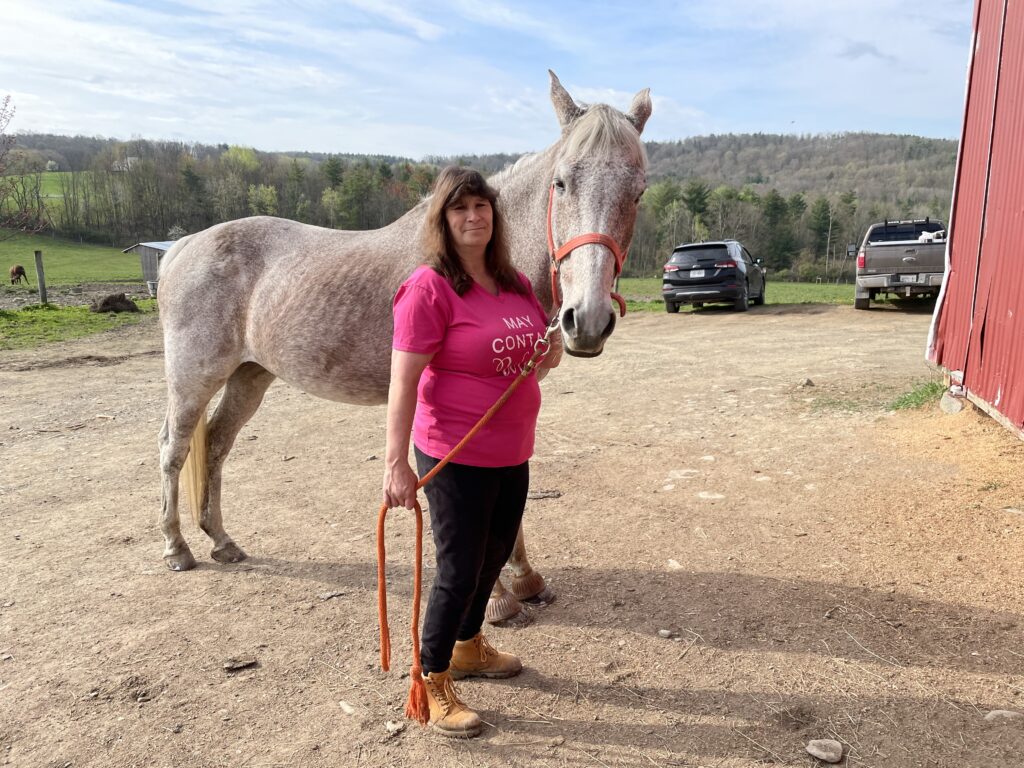
A few weeks ago, I rode up with Anne to Rising Hope Stables just south of Nicholas, NY. We were on our way to visit Anne’s horse, Shadow. When we arrived, it was early morning, the sun was full in the sky and Shadow was in his stall.
Shadow has had some medical difficulties over the past few years, but now he is looking at a long-term deadly disease: Melanoma. He is twenty-four years old, which isn’t young for a horse. The average horse lives between 25 to 33 years, depending on life circumstances and breed. So, that puts Shadow in the senior category.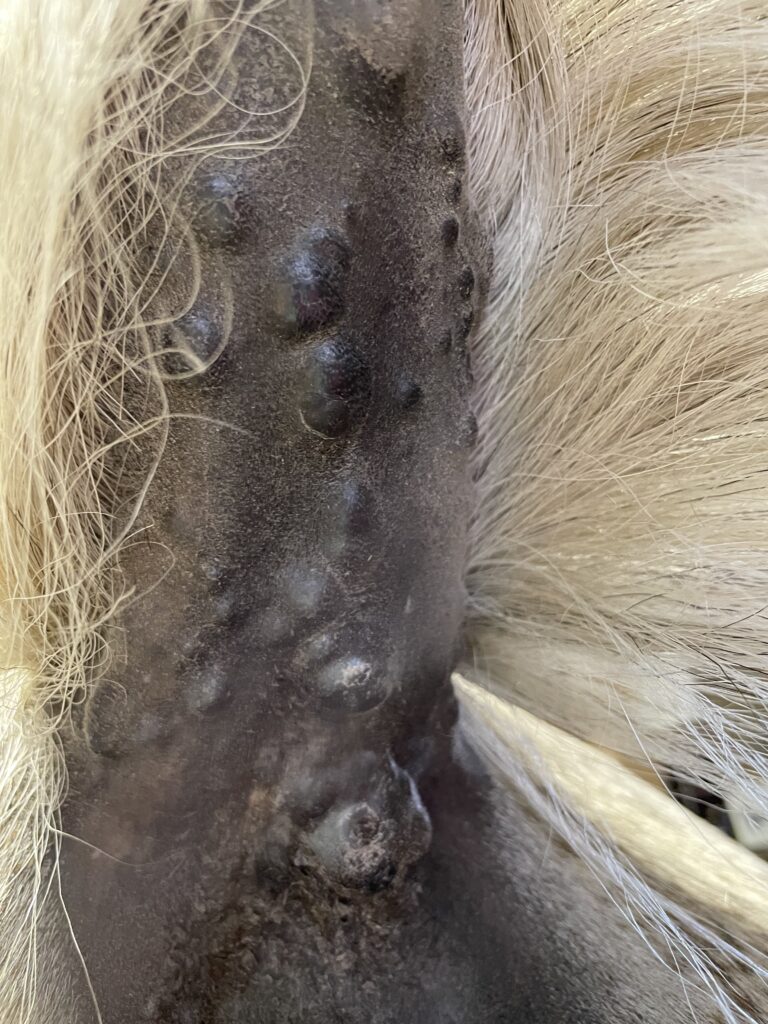
Equine melanomas are a type of skin cancer that is usually benign. The disease is diagnosed by visible tumors that develop underneath the tail, in the mouth, around the eyes, and in the ears. The tumors look like dark, hard roundish bumps.
There are two types of melanomas: dermal melanomas (small tumors) and dermal melanomatosis (tumors that merge into a large mass). Tumors that are not visible may extend to internal parts of the body and prove fatal. Yet, in most cases equine melanoma spreads slowly and many horses live untroubled for years.
Grey horses have a predisposition to the disease as studies have shown it is linked to a genetic mutation. Equine melanomas strike about 80% of grey horses over the age of 15. Genetic researchers have discovered that gene – STX17 triggers the disease.
At this point in time, Shadow seems to be untroubled by the disease. Currently, he is being monitored by the vet and Anne. So far, Shadow’s melanoma is mild and doesn’t bother him. And he and Anne are still able to hit the trail and enjoy the great outdoors.
Time has a way of moving forward, and no one can predict the future. If Shadow should worsen beyond Anne’s capability to care for him, she may decide to put him in a local clinic for horses with melanoma. But until then, Shadow is at Rising Hope Stables and all is well.
Sources:
https://www.torigen.com/clinical-trial-page?gad_source=1&gclid=EAIaIQobChMI1fLrqo_ohQMVfUhHAR2OOA21EAAYASAAEgJiZ_D_BwE
https://www.vetmed.ucdavis.edu/labs/finno-laboratory/melanoma#:~:text=Veterinary%20Genetics%20Laboratory-,Melanoma,severe%20cases%2C%20require%20surgical%20removal.
https://equinesarcoid.co.uk/melanoma-in-horses#:~:text=Small%20melanomas%20can%20be%20highly,prognosis%20for%20the%20affected%20horse.
Equine Melanoma: Harmless Bump or Time Bomb? (practicalhorsemanmag.com)
Copyright © 2024 Patricia Miran All Rights Reserved
